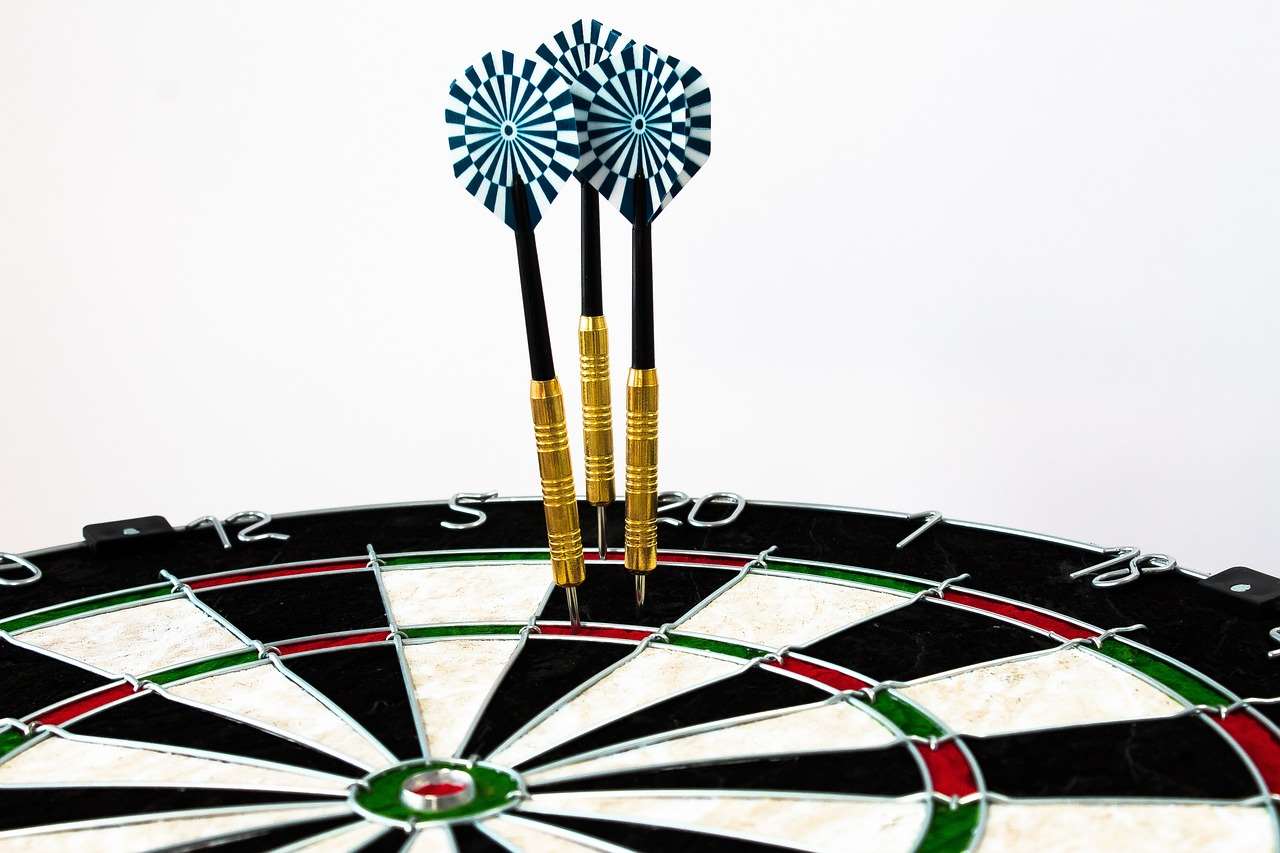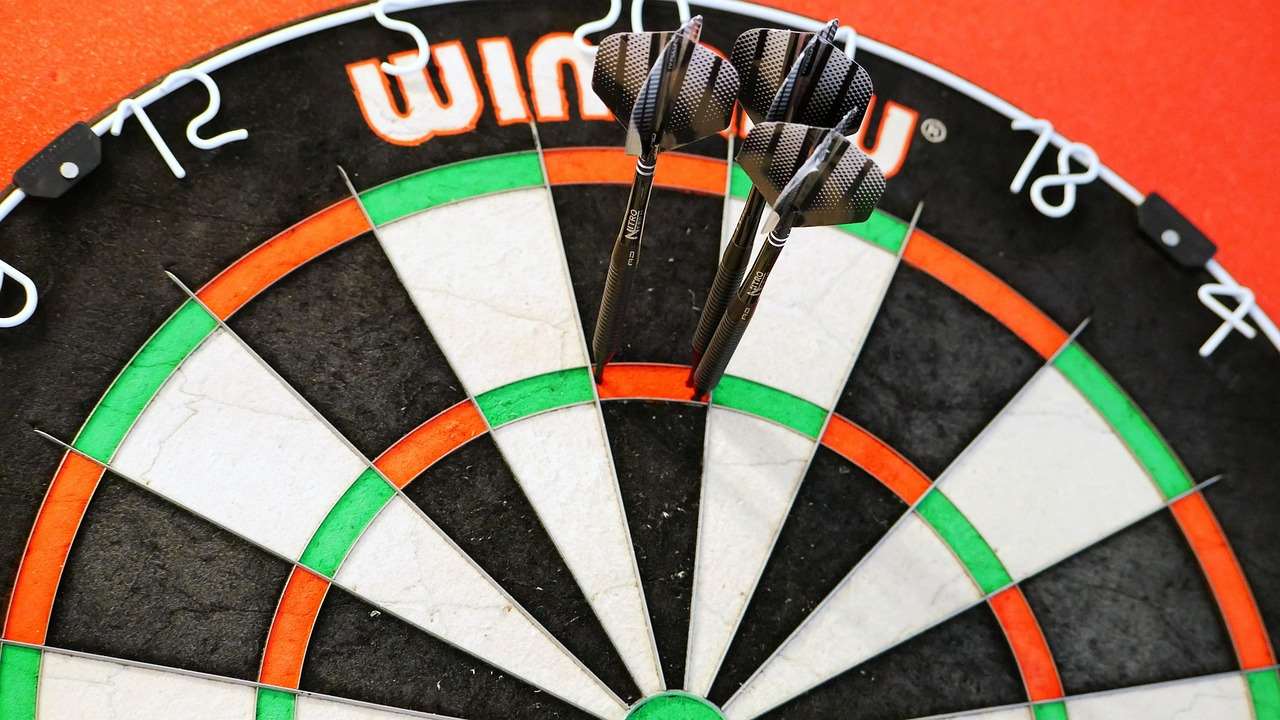The familiar game of 501 darts, a staple in pubs and tournaments worldwide, often overshadows a fascinating world of lesser-known rules and variations. Understanding the **501 variants forgotten history** unveils a diverse tapestry of gameplay, adding depth and excitement to the traditional format; this article will explore several of these exciting variants, their historical origins, and the unique challenges they present.
⚠️ Still Using Pen & Paper (or a Chalkboard)?! ⚠️
Step into the future! The Dart Counter App handles all the scoring, suggests checkouts, and tracks your stats automatically. It's easier than you think!
Try the Smart Dart Counter App FREE!Ready for an upgrade? Click above!
Exploring the 501 Variants Forgotten History
While 501 is the standard, the world of darts is brimming with different ways to play. Delving into the 501 variants forgotten history reveals how players adapted the core game to create new challenges and cater to different skill levels or preferences. These variations, often born in specific pubs or regions, offer a refreshing alternative to the classic format. Some variations change the scoring, others the starting conditions, and some even the target board itself! Understanding these nuances can significantly enrich your darts experience.

Why Were These Variants Forgotten?
Several factors contributed to the obscurity of many 501 variants. The standardization of rules, driven by organized leagues and tournaments, naturally led to the prioritization of 501. Additionally, the ease of understanding and playing 501 made it universally appealing. The introduction of electronic scoreboards also favored standardized scoring. However, these **forgotten pub dart games** often hold a special charm and historical significance, representing a time when darts was a more localized and adaptable pastime. It is worth remembering these rules because it adds to the history of the sport.
Popular 501 Variant Games
Here are a few interesting alternatives to the typical 501 dart game:
- Around the Clock: Players must hit each number on the board in sequential order, from 1 to 20, then the bullseye. The first player to complete the sequence wins. This game tests accuracy and consistency.
- Killer: Each player is assigned a number on the board. They must then hit that number three times to become a “killer.” Once a player is a killer, they can aim at other players’ numbers. If a player’s number is hit three times by a killer, they are eliminated. The last player standing wins.
- Shanghai: Players aim to score as many points as possible in each round, focusing on a specific number (e.g., 1, 2, 3…). The goal is to hit a single, double, and triple of that number in a single turn. Achieving this is called “Shanghai” and results in an instant win. You can find more rules and variations to help you to learn Darts Variants Fun Games
- Cricket: This strategic game involves claiming numbers on the board (20, 19, 18, 17, 16, 15, and the bullseye). Players must hit each number three times to “open” it. Once a number is open, they can score points on it until another player hits it three times to “close” it. The player with the highest score, having closed all the numbers, wins.
These are only a few examples. The beauty of these **historical dart game variations** lies in their adaptability and the countless regional interpretations that have emerged over time.
Strategic Adaptations in 501 Variants
Many variants force players to adapt their strategies beyond simple point accumulation. Games like “Killer” demand both offensive and defensive play, requiring players to protect their own number while attacking their opponents. “Cricket” involves a complex interplay of claiming, scoring, and closing numbers, demanding tactical decision-making. “Around the Clock” rewards relentless accuracy, promoting a different skillset than the traditional scoring-focused 501. Learning about these variations enhances the player’s appreciation and skill set.
The Influence of Regional Traditions on Dart Games
The **501 variants forgotten history** is closely tied to regional traditions and pub culture. In some areas, specific variations became deeply ingrained in local customs, passed down through generations of players. These games often reflect the unique character and preferences of the community. Exploring these regional variations provides insight into the cultural significance of darts beyond its standardized form.

The history of darts games uk shows how local customs have made a big impact on these variations. These differences add to the charm of the game.
Documenting Forgotten Darts Rules
Preserving the knowledge of these forgotten variants is crucial for maintaining the rich history of darts. Efforts to document these rules, often through oral histories or archival research, are essential for ensuring that these games are not lost to time. Sharing these rules with new generations of players can help revitalize interest in these unique and challenging variations.
Reviving Interest in Obscure Dart Games
How can we bring these obscure dartboard games list back into the spotlight?
- Pub Nights: Organize themed dart nights focused on specific variants.
- Online Communities: Create online forums or groups dedicated to discussing and sharing rules and experiences related to less common dart games.
- Tournaments: Incorporate these variants into local or regional tournaments to introduce them to a wider audience.
- Instructional Videos: Create videos demonstrating how to play these games.
These approaches are essential to saving these interesting variations, and allowing new generations to play them. If you want to learn more about rare dart game instructions, there is a lot to learn from old publications.

The Benefits of Playing Different Dart Games
Exploring different dart games offers several benefits. It improves your accuracy by forcing you to focus on different parts of the board. It enhances your strategic thinking by requiring you to adapt to different rules and objectives. And it adds variety and excitement to your dart playing experience, preventing boredom and fostering a deeper appreciation for the game.
Modern Adaptations and Hybrid Games
The spirit of innovation continues in the world of darts. Modern players are creating hybrid games that blend elements of different variations, adding new layers of complexity and excitement. These adaptations demonstrate the enduring appeal of darts and its capacity to evolve and adapt to the changing times. These new games are designed to take advantage of modern dartboards and modern scoreboards.
There are even websites dedicated to teaching ancient dart throwing games which add a unique spin to the sport.

The Future of 501 Variants
The future of 501 variants forgotten history depends on our ability to preserve and promote these games. By documenting the rules, sharing them with new players, and incorporating them into organized events, we can ensure that these variations continue to enrich the world of darts for generations to come. The internet also makes it easy to learn more about these variations.
Preserving Darts History for Future Generations
The preservation of darts’ multifaceted history is not just about nostalgia; it’s about understanding the evolution of a beloved game and appreciating the cultural nuances that have shaped its diverse forms. By actively seeking out and documenting these 501 variants forgotten history, we ensure that future generations can experience the full richness of the sport. This includes supporting local pubs that still play these games and encouraging new players to try them out. It is also important to learn more about the old dart games rules.

There are so many different ways to play darts, and it’s important to keep these variations alive.
Conclusion: Embrace the Variety of Darts
The world of darts extends far beyond the familiar 501 format. Exploring the **501 variants forgotten history** reveals a fascinating tapestry of gameplay, regional traditions, and strategic adaptations. By embracing these variations, you can enhance your own dart playing experience, deepen your appreciation for the game, and contribute to the preservation of its rich cultural heritage. So, challenge yourself to learn a new variant, introduce it to your friends, and help keep these forgotten games alive!
Hi, I’m Dieter, and I created Dartcounter (Dartcounterapp.com). My motivation wasn’t being a darts expert – quite the opposite! When I first started playing, I loved the game but found keeping accurate scores and tracking stats difficult and distracting.
I figured I couldn’t be the only one struggling with this. So, I decided to build a solution: an easy-to-use application that everyone, no matter their experience level, could use to manage scoring effortlessly.
My goal for Dartcounter was simple: let the app handle the numbers – the scoring, the averages, the stats, even checkout suggestions – so players could focus purely on their throw and enjoying the game. It began as a way to solve my own beginner’s problem, and I’m thrilled it has grown into a helpful tool for the wider darts community.